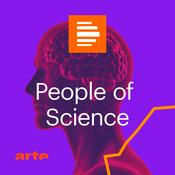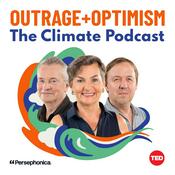New Books in Science, Technology, and Society
2765 Episoden

Jeremy Black, "A History of Artillery" (Rowman & Littlefield, 2023)
29.12.2025 | 38 Min.
Jeremy Black's book A History of Artillery (Rowman & Littlefield, 2023) traces the development of artillery through the ages, providing a thorough study of these weapons. From its earliest recorded use in battle over a millennium ago, up to the recent Gulf War, Balkan, and Afghanistan conflicts, artillery has often been the deciding factor in battle. Black shows that artillery sits within the general history of a war as a means that varied greatly between armies and navies, and also across time. Charles Coutinho, PH. D., Associate Fellow of the Royal Historical Society, received his doctorate from New York University. His area of specialization is 19th and 20th-century European, American diplomatic and political history. He has written for Chatham House’s International Affairs, the Institute of Historical Research's Reviews in History and the University of Rouen's online periodical Cercles. Learn more about your ad choices. Visit megaphone.fm/adchoices Support our show by becoming a premium member! https://newbooksnetwork.supportingcast.fm/science-technology-and-society

Donna J. Drucker, "Fertility Technology" (MIT Press, 2023)
29.12.2025 | 30 Min.
A concise overview of fertility technology—its history, practical applications, and ethical and social implications around the world. In the late 1850s, a physician in New York City used a syringe and glass tube to inject half a drop of sperm into a woman’s uterus, marking the first recorded instance of artificial insemination. From that day forward, doctors and scientists have turned to technology in ever more innovative ways to facilitate conception. Fertility Technology (MIT Press, 2023) surveys this history in all its medical, practical, and ethical complexity, and offers a look at state-of-the-art fertility technology in various social and political contexts around the world. Donna J. Drucker’s concise and eminently readable account introduces the five principal types of fertility technologies used in human reproduction—artificial insemination; ovulation timing; sperm, egg, and embryo freezing; in vitro fertilization; and IVF in uterine transplants—discussing the development, manufacture, dispersion, and use of each. Geographically, it focuses on countries where innovations have emerged and countries where these technologies most profoundly affect individuals and population policies. Drucker’s wide-ranging perspective reveals how these technologies, used for birth control as well as conception in many cases, have been critical in shaping the moral, practical, and political meaning of human life, kinship, and family in different nations and cultures since the mid-nineteenth century. Donna J. Drucker is Assistant Director of Scholarship and Research Development at the Columbia University School of Nursing. Caleb Zakarin is the Assistant Editor of the New Books Network. Learn more about your ad choices. Visit megaphone.fm/adchoices Support our show by becoming a premium member! https://newbooksnetwork.supportingcast.fm/science-technology-and-society

Colin Williamson, "Drawn to Nature: American Animation in the Age of Science" (U Minnesota Press, 2025)
25.12.2025 | 51 Min.
What do technical renderings of plant cells in trees have to do with Disney’s animated opus Fantasia? Quite a bit, as it turns out: such emergent scientific models and ideas about nature were an important inspiration for Disney’s groundbreaking animated realism. In Drawn to Nature: American Animation in the Age of Science (University of Minnesota Press, 2025), Dr. Colin Williamson presents a vivid portrait of how developments in biology, physics, and geology between 1900 and the long 1960s influenced not just Disney but the American cartoon industry as a whole. Drawing on original research on the scientific appetites of animators and studios such as Winsor McCay, the Fleischer Brothers, Walt Disney, and United Productions of America, Dr. Williamson opens new avenues for understanding the history and aesthetics of cartoons. Interrogating the differences between art and science and reconsidering the realms of dream, magic, and fantasy as they pertain to pop culture, he yields novel proposals for bridging longstanding divides between animation, live-action cinema, and the history of science. Drawn to Nature not only illuminates the extent to which animators have drawn on scientific insights, it also considers seriously how commercial animations themselves participate in scientific discourse. It revises and revitalizes our existing narratives about the history of American animation to uncover the many ways science informs our collective cultural imagination. This interview was conducted by Dr. Miranda Melcher whose book focuses on post-conflict military integration, understanding treaty negotiation and implementation in civil war contexts, with qualitative analysis of the Angolan and Mozambican civil wars. You can find Miranda’s interviews on New Books with Miranda Melcher, wherever you get your podcasts. Learn more about your ad choices. Visit megaphone.fm/adchoices Support our show by becoming a premium member! https://newbooksnetwork.supportingcast.fm/science-technology-and-society

Emanuel Deutschmann, "Mapping the Transnational World: How We Move and Communicate Across Borders, and Why It Matters" (Princeton UP, 2022)
23.12.2025 | 37 Min.
Increasingly, people travel and communicate across borders. Yet, we still know little about the overall structure of this transnational world. Is it really a fully globalized world in which everything is linked, as popular catchphrases like “global village” suggest? Through a sweeping comparative analysis of eight types of mobility and communication among countries worldwide—from migration and tourism to Facebook friendships and phone calls—Mapping the Transnational World demonstrates that our behavior is actually regionalized, not globalized.Emanuel Deutschmann shows that transnational activity within world regions is not so much the outcome of political, cultural, or economic factors, but is driven primarily by geographic distance. He explains that the spatial structure of transnational human activity follows a simple mathematical function, the power law, a pattern that also fits the movements of many other animal species on the planet. Moreover, this pattern remained extremely stable during the five decades studied—1960 to 2010. Unveiling proximity-induced regionalism as a major feature of planet-scale networks of transnational human activity, Deutschmann provides a crucial corrective to several fields of research.Revealing why a truly global society is unlikely to emerge, Mapping the Transnational World highlights the essential role of interaction beyond borders on a planet that remains spatially fragmented. This interview was conducted by Dr. Hannah Pool, a senior researcher at the Max Planck Institute for the Studies of Societies. Her research focuses on human mobilities and her new book has just been published (2025, Oxford University Press). Learn more about your ad choices. Visit megaphone.fm/adchoices Support our show by becoming a premium member! https://newbooksnetwork.supportingcast.fm/science-technology-and-society

Jennifer Ott, "Where the City Meets the Sound: The Story of Seattle's Waterfront" (HistoryLink, 2025) This
19.12.2025 | 1 Std. 12 Min.
From canoes on the beach at Dzidzilalich to steamships and piers, Seattle's waterfront was the center of the city's economy and culture for generations. Its tumultuous history reflects a broader story of immigration, labor battles, and technological change. The 2001 Nisqually Earthquake brought fresh urgency and opportunity to remake this contested space, sparking intense debates over history preservation, the environment, and Indigenous connections long ignored.Today, the revitalized Waterfront Park offers a new chapter in this ongoing story. The removal of the Alaskan Way Viaduct and the reconstruction of the seawall have redefined how the city interacts with its shoreline. With its blend of historic structures and forward-looking public spaces, the waterfront will continue to shape Seattle's identity. Street signs now mark Dzidzilalich, acknowledging the presence of Coast Salish peoples, while restored piers recall the area's industrious past.In Where the City Meets the Sound: The Story of Seattle's Waterfront (HistoryLink, 2025), Dr. Jennifer Ott details the waterfront's history, from its deep past to its complex present. Her book reveals how battles over control, identity, and space have forged one of the city's most iconic places, with a history that mirrors Seattle itself—rich, diverse, and constantly evolving. This interview was conducted by Dr. Miranda Melcher whose book focuses on post-conflict military integration, understanding treaty negotiation and implementation in civil war contexts, with qualitative analysis of the Angolan and Mozambican civil wars. You can find Miranda’s interviews on New Books with Miranda Melcher, wherever you get your podcasts. Learn more about your ad choices. Visit megaphone.fm/adchoices Support our show by becoming a premium member! https://newbooksnetwork.supportingcast.fm/science-technology-and-society
Weitere Wissenschaft Podcasts
Trending Wissenschaft Podcasts
Über New Books in Science, Technology, and Society
Höre New Books in Science, Technology, and Society, Das Wissen | SWR und viele andere Podcasts aus aller Welt mit der radio.de-App
Hol dir die kostenlose radio.de App
- Sender und Podcasts favorisieren
- Streamen via Wifi oder Bluetooth
- Unterstützt Carplay & Android Auto
- viele weitere App Funktionen
Hol dir die kostenlose radio.de App
- Sender und Podcasts favorisieren
- Streamen via Wifi oder Bluetooth
- Unterstützt Carplay & Android Auto
- viele weitere App Funktionen

New Books in Science, Technology, and Society
App laden,
loshören.








































